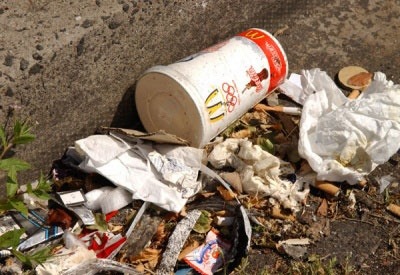Over £300,000 available for litter-fighting projects across Britain
Environment Minister Thérèse Coffey has announced today (15 August) that over £300,000 is now available for community projects aiming to get tough on litter.
The first round of funding announced a year ago saw a number of councils, charities, businesses and public projects awarded almost £125,000 to take innovative steps to tackle littering in their communities. Successful projects included measures to tackle littering by football fans, and working with hauliers and business owners to reduce roadside litter.
The funding builds on the government’s wider Litter Strategy for England, as well as the recent launch of the 25 Year Environment Plan, setting out how government will protect and enhance our natural environment. 10 per cent of the fund is entirely dedicated to preventing marine litter.
As part of the Fund, the Department for Environment, Food and Rural Affairs (Defra) is also preparing to launch a ‘digital innovation challenge’ to find digital and technological solutions to local litter challenges. Mobile apps like LoveCleanStreets, Littergram or Find it Fix It Love It have already showcased digital and technological solutions that help people report litter problems and see speedy resolutions. Indeed, it was announced in February this year that almost 12,000 incidents of littering were reported through mobile apps in 2016/17, according to a publication by Defra.
Littering is a major issue across the UK. Keeping the country’s streets clean cost local government £682 million in 2016/17, a figure produced by the Office for National Statistics encompassing the costs of street cleaning, emptying bins and removing fly-tipped waste. A large percentage of this is avoidable litter, and money that could otherwise be spent in the community. Despite this, one in five people admit to dropping litter, with a recent study showing one in four people admit to ‘careful littering’ such as leaving drinks cans or cups on window ledges.
Environment Minister Thérèse Coffey commented: “This government is tough on tackling litter, which if left unchecked makes our towns and cities less pleasant places, poisons our wildlife, and blights our countryside. That is why we are providing grants of up to £10,000 for communities to come up with creative solutions to tackle litter in their local area and I encourage local groups to apply.
“It is only through government and communities working together that we will affect the long-term behavioural change that is needed to tackle this scourge, and leave the environment in a better state than we inherited it.”
Communities Minister Rishi Sunak added: “We are determined to make our cities, towns and countryside greener, cleaner and tidier environments for all.
“Brilliant ideas to make that happen were realised with the first round of funding. Now, we’re looking for people to come forward with inventive and impactful projects to build on that and our wider strategy to substantially reduce litter.”
Keep Britain Tidy Chief Executive Allison Ogden-Newton said: “Innovation is a vital part of turning the tide on litter. We need to find new ways to change the behaviour of those who think it is OK to drop their rubbish on the ground and new solutions that make it easier for people to do the right thing.
“It is fantastic to see the government supporting innovation through this scheme, which is helping organisations and communities develop exciting new ideas and approaches, and at Keep Britain Tidy we are delighted to be receiving funds to enable us to test new behavioural interventions through our award-winning Centre for Social Innovation.”
The government recently announced a range of new measures to crack down on litter, including almost doubling on-the-spot fines for littering from £80 to £150 and introducing new penalties for littering from vehicles, making the vehicle’s owner responsible even if it isn’t possible to identify who threw the litter.
Defra noted in February that ‘there’s no one perfect way to measure litter’, but has collected data to reveal the current state of the nation regarding litter and littering, as well as how successfully the government is keeping up with the aims of its Litter Strategy.
The litter ‘dashboard’, developed by the Litter Strategy Working Group for Data and Monitoring, presents five key indicators to assess and monitor litter in the UK; examining not only the amount of litter, which is hard to quantify accurately, but also general behaviour and attitude towards it.
The dashboard will be updated annually to make use of continually evolving data from the sources and surveys utilised, helping Defra to inform policy development and assess progress over time.
The Litter Innovation Fund application window closes 5 October and more information can be found one the Waste & Resources Action Programme (WRAP) website.







